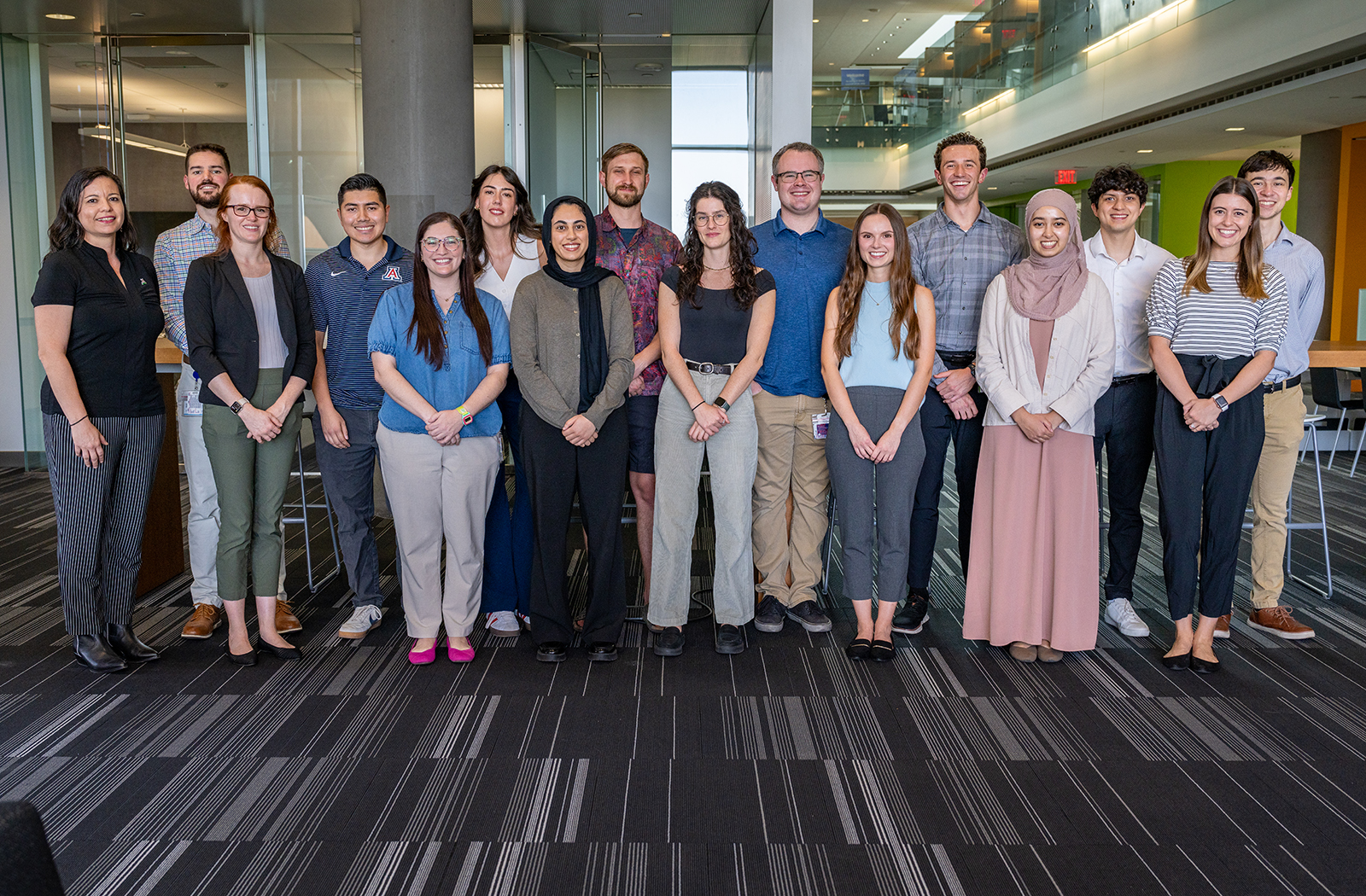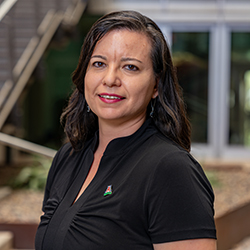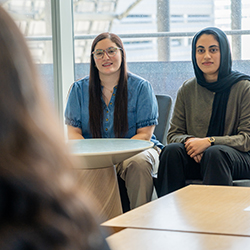
The Importance of Medical Spanish in Building Relationships with Patients

With Arizona’s unique demographic landscape and proximity to the border, medical Spanish is vital in Arizona to provide equitable access to health care for its large Hispanic and Latinx population.

The Advancing Medical Inclusivity: Growing our Spanish Skills (AMIGOSS) program, a part of the Service and Community Health Certificate of Distinction, plays a crucial role in graduating cohorts of competent physicians.
“These physicians will serve as bilingual English-Spanish health care providers, effectively bridging the language gap in health care,” Dr. Zapien-Hidalgo said. “Students enrolled in this track will be well-prepared to meet the health care needs of patients who choose Spanish as their preferred language.”
As of 2024, data from the United States Census Bureau shows that 26% of individuals over the age of five in Arizona speak a language other than English at home, with around 19.2% of them speaking Spanish. Dr. Zapien-Hidalgo said the need for immediate action is evident, as language barriers can lead to miscommunication and unequal access to quality care.
“The impact of language on health care disparities is significant — with language being identified as a major contributor to health disparities for patients who prefer languages besides English — and may result in an increased risk of medical errors and poor health outcomes,” Dr. Zapien-Hidalgo said.
For physicians, Dr. Zapien-Hidalgo said that learning Spanish can directly address this medical disparity. The benefits of communicating effectively with Spanish-speaking patients without the need for interpreters is apparent.
“This not only improves the accuracy and clarity of the medical dialogue but also builds trust and rapport,” Dr. Zapien-Hidalgo said. “Patients tend to feel more comfortable and are likely to share sensitive information when the physician speaks their language.”
Isrealia Jado, a second-year medical student at the College of Medicine – Phoenix, participated in the inaugural AMIGOSS class. She was inspired to become a bilingual physician after dealing with a lack of Spanish-speaking health professionals caring for a loved one when they were receiving end of life care.
“I found it hard to witness something as natural as end-of-life care with an unnatural feeling to it by having a home health provider that did not speak Spanish,” Jado said. “It felt wrong, and I returned to college fueled by that observation.”
Jado has been participating in courses led by Dr. Zapien since 2016 and has continued to grow her medical Spanish vocabulary and confidence speaking Spanish to patients.

“Being able to speak to our patients in Spanish, or whichever language is their native tongue, allows us to truly know our patients,” Jado said. “It’s not enough to just be familiar with Spanish, as many of us living in Arizona are. We need to be truly bilingual to provide quality care for patients.”
Antonella Semaan, a first-year student at the College of Medicine – Phoenix, decided to participate in AMIGOSS in an effort to expand his skillset for serving Hispanic and migrant populations in the Phoenix area.
Although he is a native Spanish speaker, he said that speaking Spanish isn’t enough to communicate with patients and that medical language is something he wishes to learn more through AMIGOSS.
“Through my volunteer work, I got to witness the lack of access to health resources that some communities experience, in particular the migrant population,” Semaan said. “With the Hispanic demographic increasingly becoming a more significant fraction of the U.S. population, I believe it is important to parallel such representation in the health care workforce because it can have a direct impact on clinical outcomes.”
About the College
Founded in 2007, the University of Arizona College of Medicine – Phoenix inspires and trains exemplary physicians, scientists and leaders to advance its core missions in education, research, clinical care and service to communities across Arizona. The college’s strength lies in our collaborations and partnerships with clinical affiliates, community organizations and industry sponsors. With our primary affiliate, Banner Health, we are recognized as the premier academic medical center in Phoenix. As an anchor institution of the Phoenix Bioscience Core, the college is home to signature research programs in neurosciences, cardiopulmonary diseases, immunology, informatics and metabolism. These focus areas uniquely position us to drive biomedical research and bolster economic development in the region.
As an urban institution with strong roots in rural and tribal health, the college has graduated more than 1,000 physicians and matriculates 130 students each year. Greater than 60% of matriculating students are from Arizona and many continue training at our GME sponsored residency programs, ultimately pursuing local academic and community-based opportunities. While our traditional four-year program continues to thrive, we will launch our recently approved accelerated three-year medical student curriculum with exclusive focus on primary care. This program is designed to further enhance workforce retention needs across Arizona.
The college has embarked on our strategic plan for 2025 to 2030. Learn more.